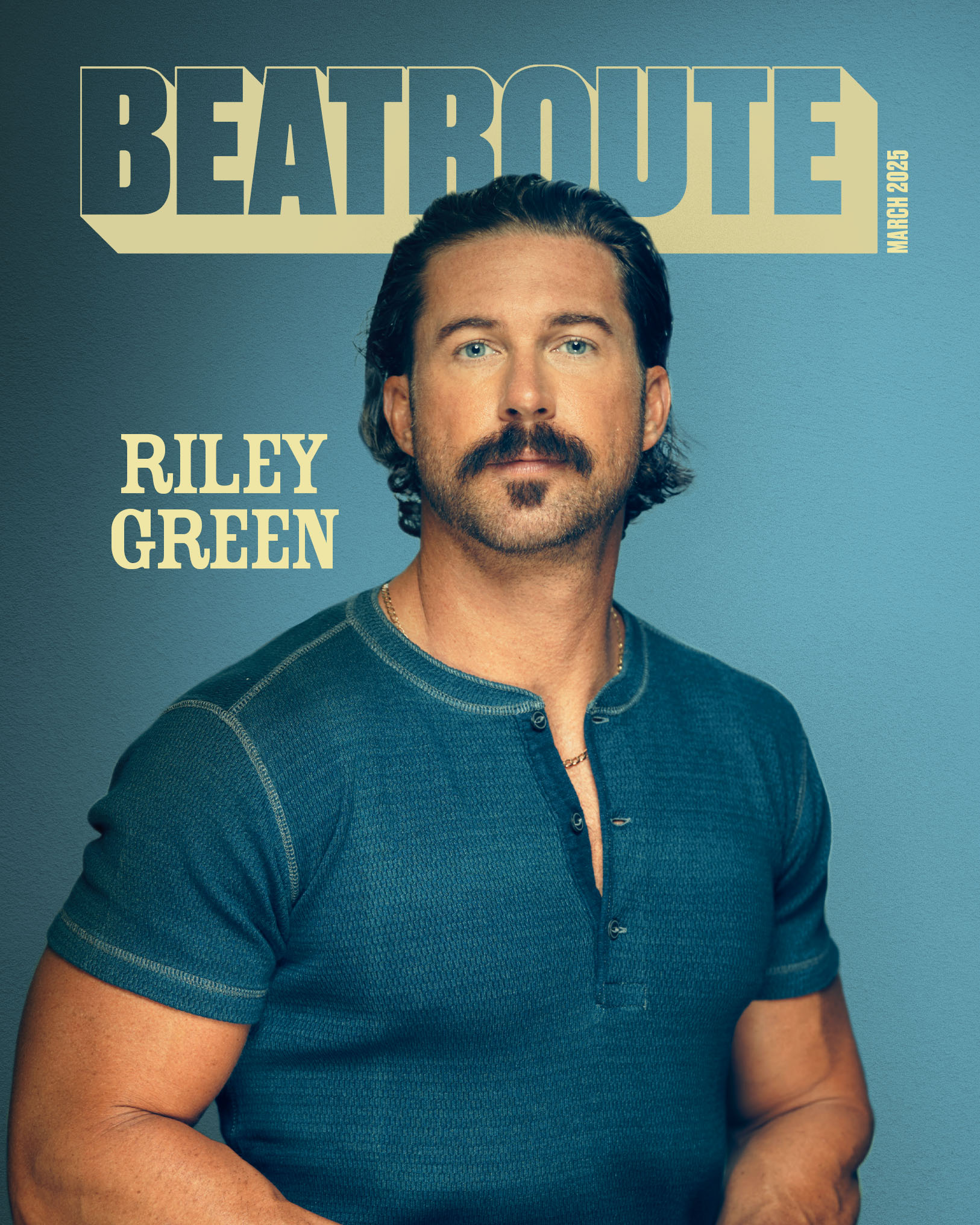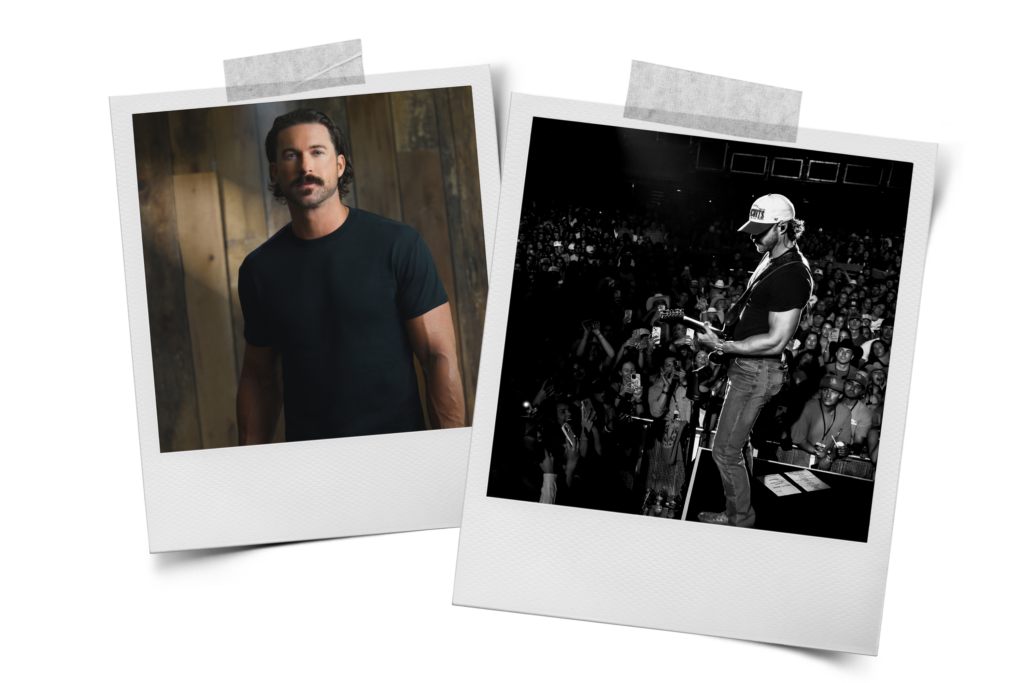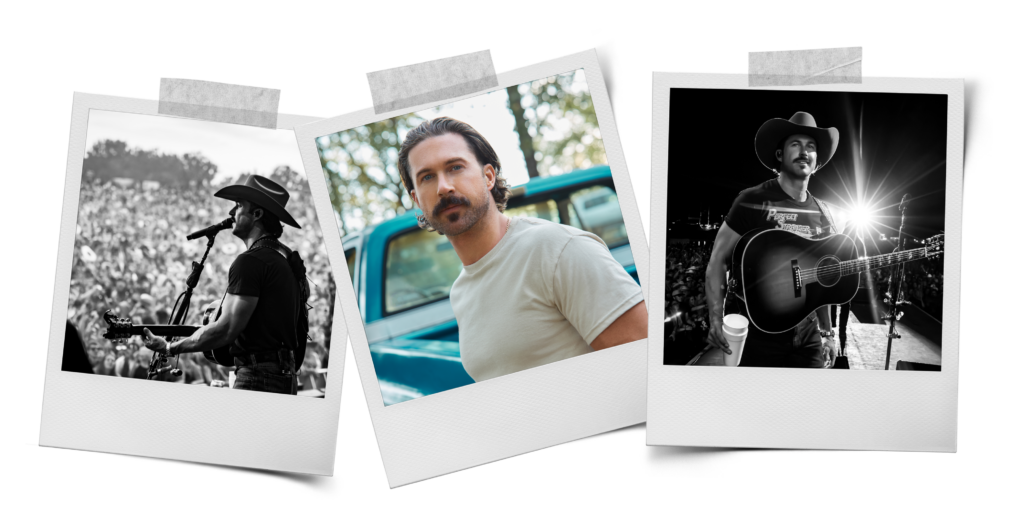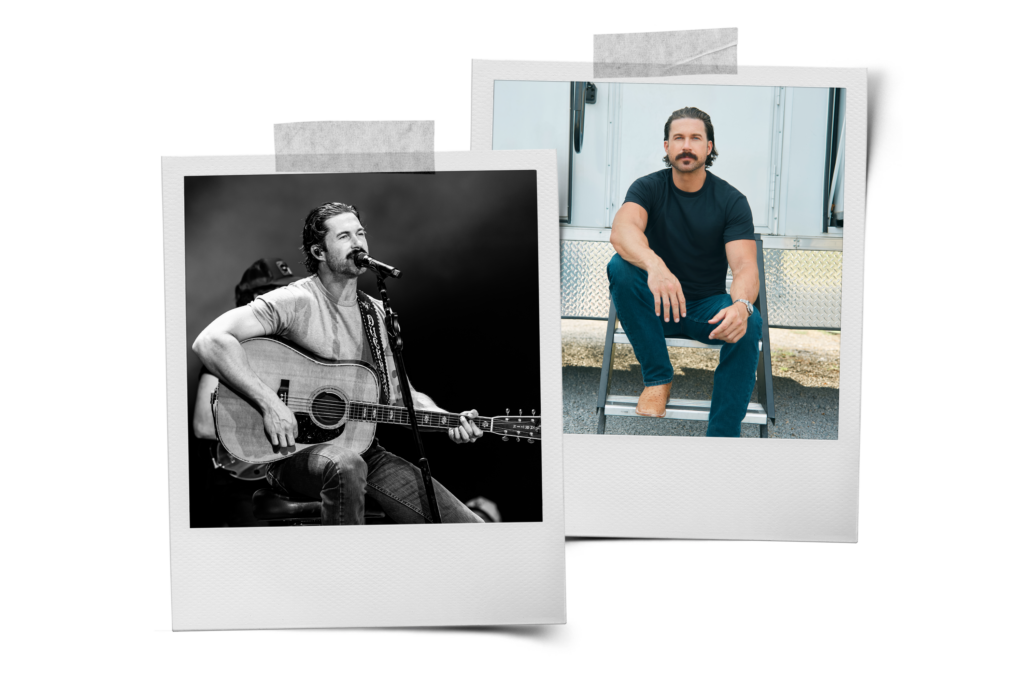COVER
Riley Green
Keeping It Real, Keeping It Country
By Sophie Cino
Publishing date: Mar 07, 2025
R
Riley Green has never been one to follow trends. Instead, he sticks to what he knows—authentic storytelling, traditional country roots, and a connection to the fans who’ve made his journey possible. Pulling inspiration from all the greats, Riley has found his sound. From his small town, Alabama, duck hunting upbringing to sold-out stadium tours across the globe, Green’s career has been a testament to staying true to his roots while evolving with the genre.
Before we got into questions about the music, I was intrigued to find out where his infamous nickname came from. Long before he was known for his chart-topping country hits, Riley Green had a different moniker—Duck Man. “Growing up in northeast Alabama, I loved being outside,” Green says. “I did a little bit of fishing and hunting with my granddaddy, but duck hunting wasn’t huge where I was from. I got really into it, though, and when Instagram came around, that handle stuck. People thought my last name was Duckman for a while, and once that reputation starts, you just roll with it.”
Riley Green has never been one to follow trends. Instead, he sticks to what he knows—authentic storytelling, traditional country roots, and a connection to the fans who’ve made his journey possible. Pulling inspiration from all the greats, Riley has found his sound. From his small town, Alabama, duck hunting upbringing to sold-out stadium tours across the globe, Green’s career has been a testament to staying true to his roots while evolving with the genre.
Before we got into questions about the music, I was intrigued to find out where his infamous nickname came from. Long before he was known for his chart-topping country hits, Riley Green had a different moniker—Duck Man. “Growing up in northeast Alabama, I loved being outside,” Green says. “I did a little bit of fishing and hunting with my granddaddy, but duck hunting wasn’t huge where I was from. I got really into it, though, and when Instagram came around, that handle stuck. People thought my last name was Duckman for a while, and once that reputation starts, you just roll with it.”

His passion for hunting was more than just a hobby—it became a defining part of his identity. “I remember getting up before daylight, freezing my tail off, and waiting for that perfect moment,” he recalls. “There’s just something about the quiet before the hunt, the way everything feels so still. It teaches you patience.” As his love for the outdoors grew, so did his online following. His instagram username was @rileyduckman so fellow hunters and country fans alike embraced it. “At first, I didn’t think much of it, but then people started recognizing me as ‘that Duck Man guy’ at shows. It just stuck,” Green laughs. “Even now, I’ll be out somewhere, and someone will yell ‘Duck Man!’ instead of my name. It’s funny how those little things follow you.”
With influences like Merle Haggard and George Jones, Green has always prioritized storytelling in his music. However, he also understands the need to keep things fresh. “Country music changes,” he acknowledges. “For me, storytelling is what makes something country, but I try to push myself melodically and experiment in the studio while keeping that authenticity.” His latest album, Don’t Mind If I Do, exemplifies this balance, blending fiddle-heavy arrangements with modern production under the guidance of Dann Huff. “Songs like “Change My Mind” took on a whole new life in the studio. It started out just with me and an acoustic guitar, but by the time we recorded it, it had evolved into something much bigger.”
Green credits Huff’s production style for pushing him out of his comfort zone. “Dann has a way of taking a song that feels really raw and giving it that extra polish without losing what makes it real,” he says. “For example, Mississippi or Me had this simple, heartfelt energy when I first wrote it, and then we layered in these steel guitar elements that just made it soar. It still sounds like me, just elevated.”
Even as he experiments, Green makes sure the heart of his music remains unchanged. “I don’t ever want to be one of those artists where you can’t tell it’s me when you turn on the radio,” he says. “I want people to hear the first few notes and know it’s a Riley Green song. That’s why I lean on those traditional sounds—because that’s what country music is to me.”
When Green’s duet “You Look Like You Love Me” with Ella Langley became a viral hit, it wasn’t something he had anticipated. “Ella was out on tour with me, and a lot of my collaborations happen organically that way,” he explains. “I actually didn’t plan for her to sing on the title track of “Don’t Mind If I Do”, but she laid down a demo vocal in the studio, and it was just perfect. Some things just fall into place like that.” From there grew their fantastic partnership as she is currently traveling on Green’s tour as an opening act.
Green’s songwriting is deeply rooted in his upbringing in Jacksonville, Alabama, where a blend of Southern rock, classic country, and gospel music filled his childhood. “My family played everything,” he recalls. “One day, it’d be Merle Haggard, the next it was The Eagles or Fleetwood Mac. That mix of sounds definitely stuck with me.” This melting pot of musical influences helped shape Green’s distinct style—one that blends traditional country storytelling with a touch of gritty rock and roll.
But nothing influenced him more than his grandfather’s Golden Saw Music Hall, a small-town venue where local musicians gathered to play country standards and bluegrass favorites. “That’s where I learned what country music really is,” Green says. “It wasn’t about record sales or radio play—it was about the stories in the songs and the way people connected with them.” As a kid, he soaked it all in, watching his grandfather and other musicians play for the sheer love of it. “It was this little old-school place where you’d see guys in overalls with a steel guitar, just playing their hearts out. I remember thinking, ‘Man, this is real country music.’”
That sense of authenticity continues to drive Green’s songwriting today. “I write about what I know,” he says. “I go home, and nothing has changed—same store, same church, same people. That’s where my inspiration comes from.” He often pulls directly from personal experiences, whether it’s childhood memories of fishing with his granddaddy, the simplicity of small-town life, or the relationships that have shaped him. “A song like I Wish Grandpas Never Died came straight from real life,” he explains. “That wasn’t just a song idea—I was sitting in my truck thinking about the people I’ve lost and the things I miss about growing up. That’s what country music is supposed to be.”
Even as his career takes him to sold-out arenas across the country, Green remains grounded in the place that built him. “At the end of the day, I’m just a guy from Jacksonville, Alabama, writing about the people and places that made me who I am,” he says. “If I ever lose that, then I’ve lost what makes my music real.”
For Green, the real test of a song isn’t in the studio—it’s on stage. “You can write a song that feels great on paper, but until you play it live, you don’t really know if it connects,” he says. “Some songs get a bigger reaction than I ever expect, and others, you think they’ll hit hard, and they just don’t.” This trial-by-fire approach has shaped his albums, with crowd energy often determining what makes the final cut. “If I see people singing it back after the first chorus, that’s when I know we’ve got something special.”
Touring with country’s biggest names, including Morgan Wallen and Luke Combs, has also refined Green’s performance style. “Those guys put on a hell of a show,” he says. “Playing stadiums forces you to think about every detail—how to work a massive stage, how to keep a crowd of 60,000 engaged. But at the same time, you have to find those moments to strip it back, tell a story, and make it feel personal. That’s the balance I’m always chasing.”
With over 100,000 tickets sold in just hours for his Ain’t My Last Rodeo tour, Green is more in demand than ever. “I just go home whenever I can,” he says. “Spending time with my family, going to flea markets, buying goats—it keeps me grounded.”
In an industry that demands constant content, Green admits the pressure to stay relevant can be exhausting. “I probably do feel burned out sometimes,” he admits. “But while people are listening, I want to write as much as I can and play as many shows as I can.”
With three albums in five years, Green shows no signs of slowing down. “I never thought I’d get this far, so I just want to keep writing songs that connect with people,” he says. As for dream collaborations? “I’d love to work with John Pardi or Cody Johnson. I’m sure something will happen naturally on this tour.”
His advice for aspiring country artists? “Play every show you can, and write a ton of songs. You never know which one might change your life.”
For Riley Green, country music isn’t just a career—it’s who he is. And as long as people are listening, he’ll keep telling his stories, one song at a time.
Photographer: Jeremy Cowart



